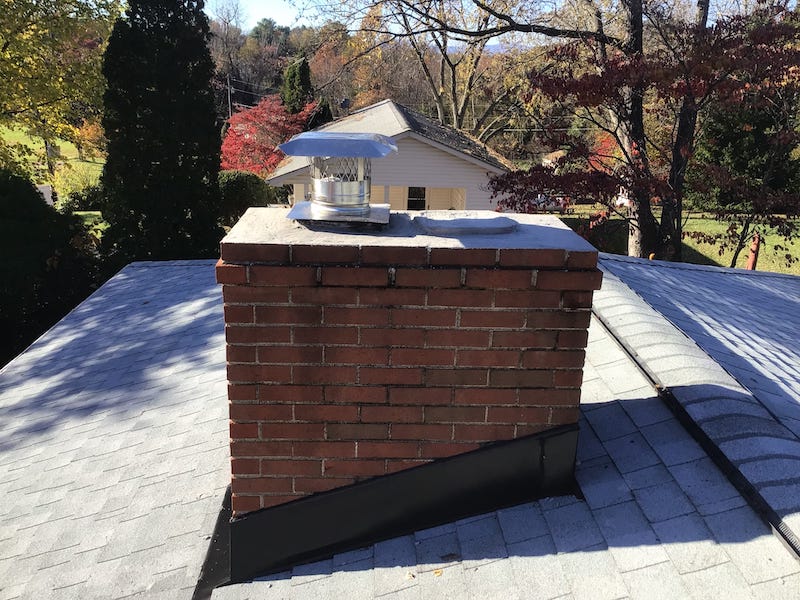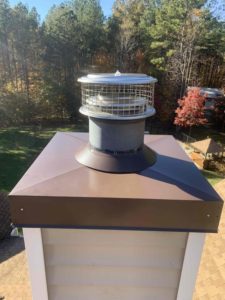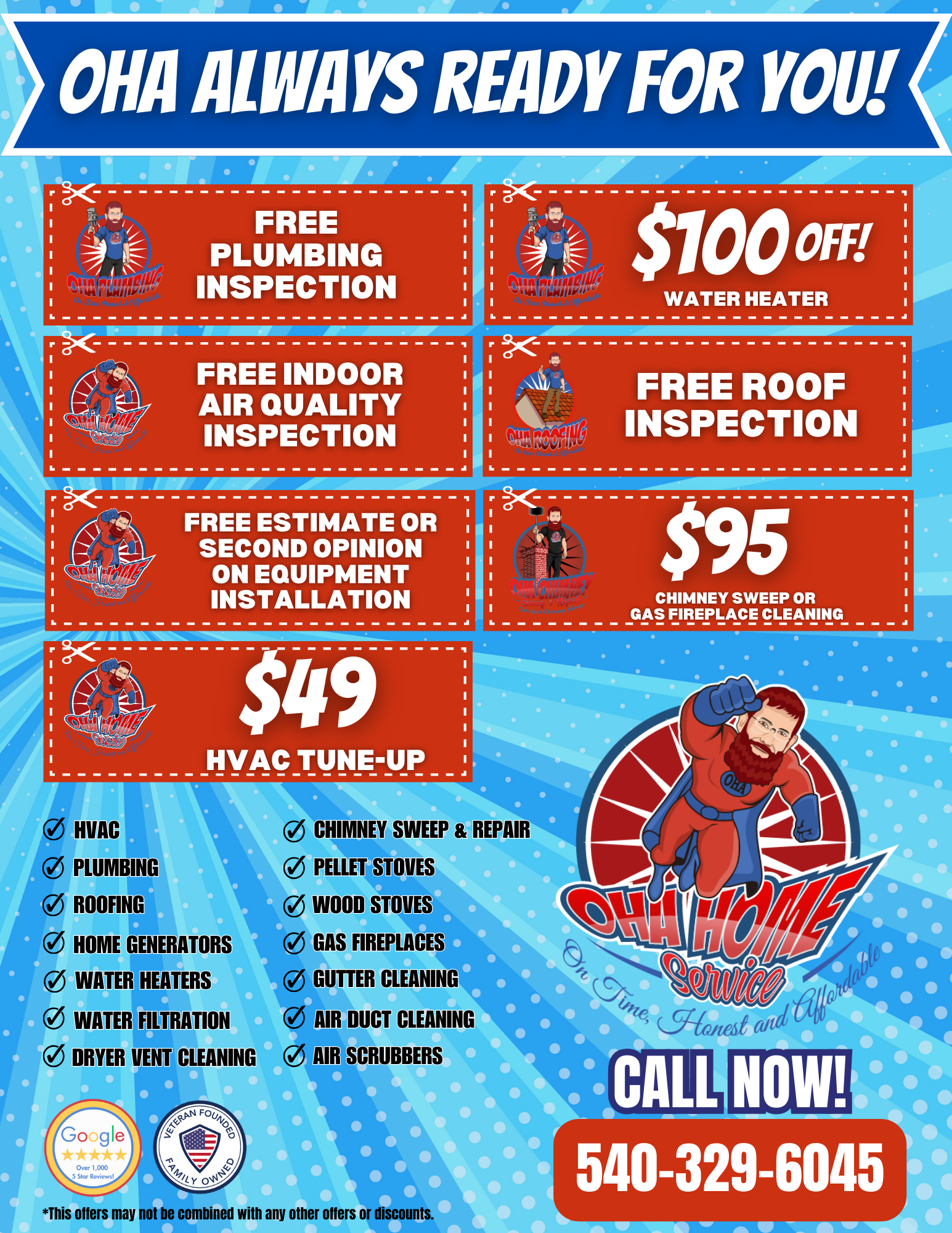Being a homeowner is not an easy job. There is so much you need to manage and learn to keep all the aspects of your house running efficiently, and your home’s chimney is no exception.
The chimney in your house needs to be cleaned regularly to function efficiently. However, chimney cleaning is not something that you should do yourself.
Chimney inspection requires adequate knowledge and experience, so it is better to look for CSIA Certified professionals instead of doing the work yourself.
During the winter season, the chimney is visible to fumes, heat, and various dust particles that accumulate inside. It is important for you to ensure the maintenance of your chimney because a chimney malfunctioning can lead to a fire.
An Annual chimney inspection helps identify fire hazards before those problems cause damage to your home or a life.
Some common damages that chimney examination uncovers include :
- Excessive creosote or soot buildup
- Faulty chimney flashing
- Damaged or cracked flue liners
- Cracked chimney cement crowns
- Animal infestation
- Damaged refractory panels
- Proper clearance to combustibles
- Other potential fire hazards
Here is detailed information about chimney inspection that can help you understand its importance.

How Often Should I Do Chimney Inspection?
The CSIA & The NFPA (Chimney Safety Institute Of America, National Fire Protection Agency) both state that you should inspect your chimney ANNUALLY regardless of whether you have used the system or not.
What Is the Importance of Chimney Inspection?
A chimney inspection is important to ensure that it is working and meets NFPA codes and standards. Beyond that, an inspection is also important because chimneys can catch problems if you do not ensure their maintenance.
An annual inspection can save you thousands of dollars, allowing easy repairs. The inspection determines the signs of damage or potential fire hazards to your chimney. It also helps determine if you need to clean your chimney. CSIA Certified chimney sweeps have knowledge,next-level experience, and they give you the proper recommendations and advice.
What if You Do Not Get Your Chimney Inspected?
If you decide not to get your chimney inspected, there are higher chances that the chimney will collect debris and creosote. In some cases, animals can try to gain entry into chimneys. Moreover, blockage, creosote buildup, and other issues can lead to problems such as smoke entering your home or chimney fires, which can lead to even bigger risks.
Fire can be dangerous. No matter where you build a fire and how seemingly safe a system is, there remains a danger that fire can cause damage to you and your property,
If you choose to make a fire in your chimney, it is crucial to inspect your chimney as part of standard home maintenance annually.
Many homeowners who live in a hot climate can forget about the inspection. Not doing annual inspections can be dangerous. It is crucial for homeowners not to neglect this important factor.
Now, if you consider hiring a chimney sweep, you might wonder what the whole procedure looks like.
Here is detailed information to help you know about the chimney inspection process
What Can I Expect During My Chimney Inspection?
When you hire a CSIA Certified Chimney Sweep, you need to remember the services you are paying for. The first and most important thing is to hire a company with great credentials, experience, and knowledge about chimney systems.
The goal of a company should be to give an accurate picture of your chimney system. Usually, the inspection includes an inspection report along with photo documentation.
The Technicians explain their observations about the chimney within this report. Though these reports can get very technical, you do not need to get alarmed.
A Certified Chimney Sweep will teach you everything you need to know about your chimney. Keep in mind that the report shows the condition of the chimney at the moment. This condition can change immediately after the report is complete.
The report’s goal is to get to know about the condition of your chimney. The inspectors share every detail with you. The list of meaningful details can be helpful for you.
Types of Chimney Inspection
Even though chimneys are made of high-quality material, they can still go through wear and tear. Dampers and metal flues can corrode, crack and even break. In addition, bricks and mortar keeping your chimney together can also deteriorate from freeze/thaw cycles. All these problems can have serious consequences, such as structural failure.
It can lead to expensive structural damage in case of a house fire. If you do not want to deal with all these hazards, you must annually inspect your chimney.
Here are the three types of fireplace and chimney inspections:
Level 1 Inspection
Level 1 inspection is the most basic inspection that you can get for your chimney. You should get a Level 1 inspection once a year. The primary purpose of this inspection is to make sure that your chimney is free from obstructions.
Through this inspection, the inspector determines if there are any signs of damage in the chimney. This inspection is combined with a chimney cleaning. In this inspection, the technician will
Visually examine the exterior and interior of your chimney to check for all the signs of damage and obstruction, leak, or airflow problem.
Remove creosote buildup and other obstructions like animal nests, dead animals, leaves, and lawn debris.
Level 2 Inspection

Level 2 inspection is essential for real estate transactions.
In this inspection, the inspector takes a closer look at the chimney using video equipment. If there are signs of damage in level 1 inspection, level 2 inspection helps pinpoint the root cause of the problem and assess the extent of the damage.
It is always a clever decision to go for a level 2 inspection after a chimney fire or dramatic weather events such as an earthquake, hurricane, or a heavy storm.
Moreover, if you are buying or selling the house, it is important for you to do level 1 and level 2 inspections.
During level 2 inspection, the technician will
Get into the slink area to have a closer look at the hidden parts of the chimney.
Insert a video camera into the chimney to survey the interior chimney walls and to observe the flue lining to identify the signs of corrosion, intrusion, and deterioration of any other type of damage.
The technicians check everything and remove the removable parts of a chimney to look inside the spaces.
For these sorts of inspections, the inspector also performs a chimney sweep.
Hire an experienced CSIA Certified Chimney Sweep, as they can give you a copy of the video so that you can see what they have found.
Level 3 Inspection
A level 3 inspection is only endorsed if there are chances of serious hidden problems that cannot be fully recovered through a level 1 or 2 inspection. This inspection is fairly extreme but can be necessary if an extreme event like a chimney fire occurs.
If the inspector knows there is something wrong with the chimney but cannot access the root of the trouble, they do a level 3 inspection.
In this inspection, the chimney technician removes the pieces of chimney or material present in the home, such as the wallboard, to better access the areas that need an inspection.
Level 3 inspection is highly expensive because it requires the removal and restoration of parts of your home.
Schedule level 1 inspection once a year and level 2 inspection at the time when you suspect the chimney might have been damaged. This way, you can ensure the safety of your home.
Investing in regular chimney inspection can save you thousands of dollars in the future by catching the issue early. Sometimes the solution is quite simple, such as applying a waterproof treatment or installing a new chimney cap.
Final Thoughts
An annual chimney inspection can save your life by uncovering all the safety threats, and they highlight the need to resolve them before they become a big hazard. Moreover, if you are buying a new home and have no idea when the last owner cleaned or inspected their chimney, it is important to schedule a sweep.
It gives you an accurate benchmark on the health of your chimney. You will also get the information if there is a need for current or future repairs to ensure the safety and performance of your system.











